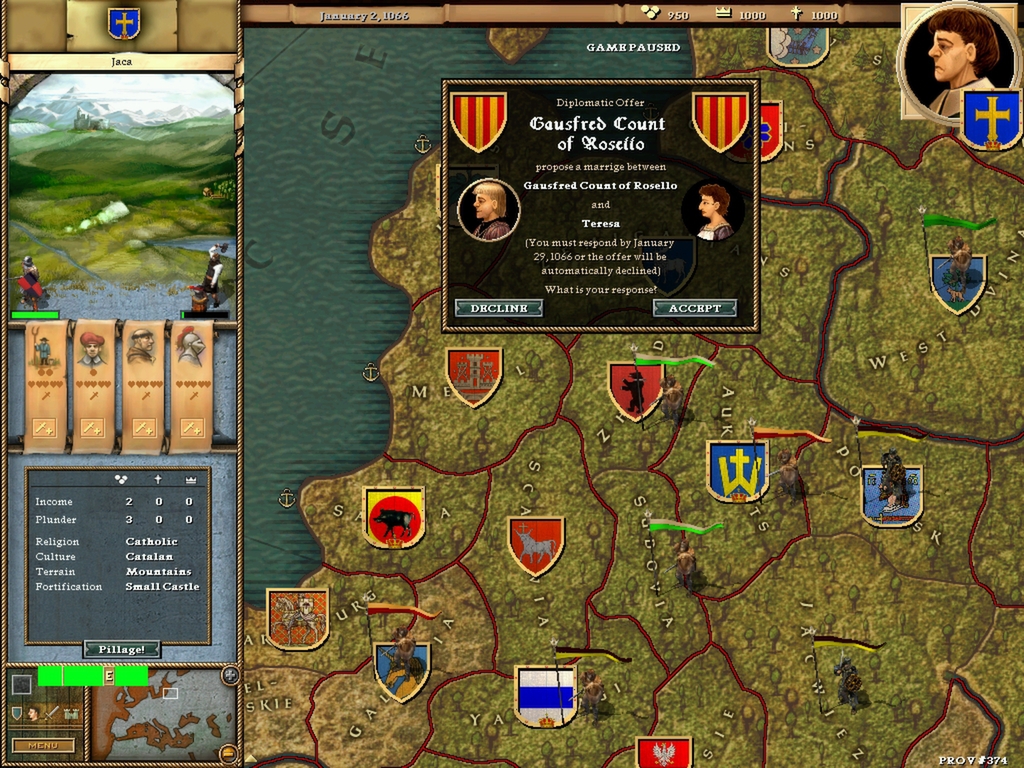
The emperor and the seven Prince-Electors can nominate an heir from amongst themselves, any legitimate children and siblings of the ruler, as well as any other major de jure vassal of the empire. Vassals will tend to favor older, distant relatives over close family. The ruler and vassals of one or two ranks below the title can nominate an heir – the tanist – from among the members of the ruler's dynasty. Grandchildren of non-criminal, living children are not eligible heirs. Known criminals are not eligible heirs, but their descendants are. Voting power in this succession law is influenced by the elector's total domain development and capital popular opinion. The ruler and all de jure vassals (except barons) can nominate an heir amongst the ruler's extended family and any available claimants. The ruler and all direct de jure vassals of one or two ranks below the title can nominate an heir from among powerful vassals, the ruler's legitimate children, and any other valid claimant. The Ruler and all direct de jure vassals of one or two ranks below the title can nominate an heir from amongst themselves and the close family of the ruler.Ĭulture doesn't have The Witenagemont or Ting-Meet tradition In addition, adding title succession to the title will result in title allegiance, whereby vassals owe fealty to the title holder rather than to their liege personally. Note that this will only affect the succession law for the title in question other titles which the character holds will be distributed normally, which can lead to unexpected results. Children will not be given anything, unless one of them happens to be the oldest house member.įeudal rulers can apply a Title Succession law on duchy, kingdom or empire rank titles at the cost of 1500 prestige. Upon succession, all of the late ruler's titles will be given to the oldest eligible member of their house. Upon succession, all of the late ruler's titles will be given to the player heir, which is their youngest eligible child. Upon succession, all of the late ruler's titles will be given to the player heir, which is their oldest eligible child. The player heir will always inherit at least half of the late ruler's titles. Younger children will have titles created for them, if enough land is held. Children can not be preemptively granted titles they do not stand to inherit. Younger children will be given titles starting with those of the same rank as the primary title, if none are available they will be given lower-ranking titles. Upon succession, all titles held by the late ruler will be divided amongst their eligible children, with the player heir always being given the primary title, realm capital and any direct de jure titles associated with it. All children will gain claims on titles they did not inherit regardless of the realm succession law. The realm succession law determines which and how many heirs will inherit the character's titles upon death. Changing gender law requires High Crown Authority for feudal and clan realms, and only Limited Tribal Authority for tribal realms. The Visigothic Codes innovation gives access to Equal succession regardless of faith. The gender law determines which gender can inherit titles and claims and who can have more than one partner if its faith doctrines allow. Changing gender or succession laws costs 500 prestige and requires all powerful vassals to either have a positive opinion of the liege, be imprisoned or be terrified. There are three types of law affecting succession to a title: gender, realm and title. Enables the Adopt Clan Ways through Liege decision.Enables the Adopt Feudal Ways through Liege decision.

Clan government vassals provide at least 25% levies.Clan government vassals provide at least 10% income.



 0 kommentar(er)
0 kommentar(er)
